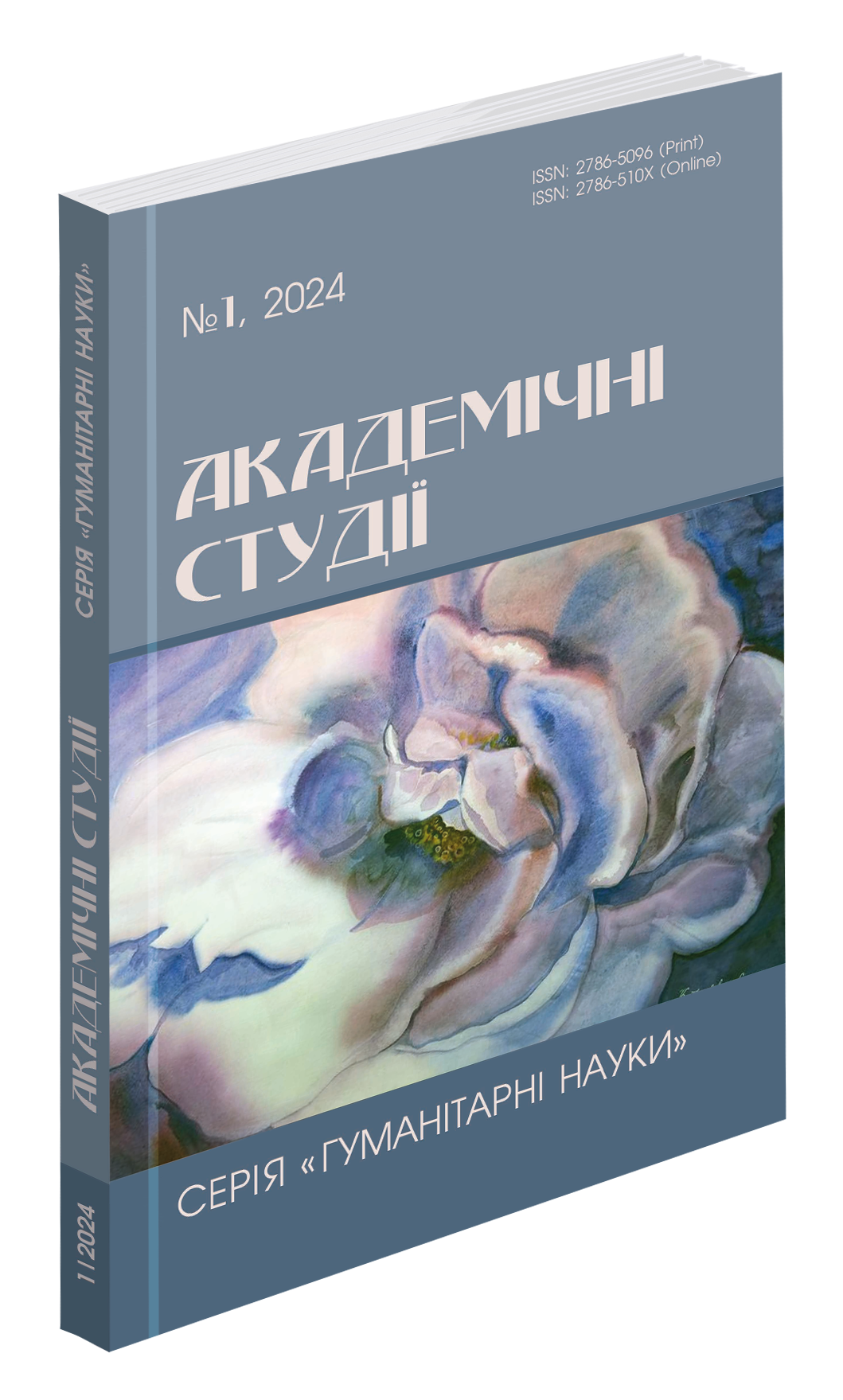Abstract
The article is an attempt to read Lesya Ukrainka’s dramatic poem «On the Field of Blood» in the biblical context. Speaking about the biblical code of the work, we mean an attempt to understand the peculiarities of the author’s interpretation of the Gospel plot. The goal of exploration is to find the meanings that are revealed in the relationship between the drama and its original source – the Bible. The Gospel story about Judas’ betrayal became for the writer the universal ontological matrix in the format of which she creates her apocryphal version of the traditional plot, in the center of which is not Christ, but the betrayer. The artistic model created by the author, while preserving its universality, is complicated by actual value and philosophical meanings. In our opinion, the testimony of Luke and John about the entry of Satan into Judas, as well as the night time of the betrayal, emphasized by the Evangelist, served as important factors for the author of the dramatic poem «On the Field of Blood» on which the main concept of her author’s apocrypha is based. We believe that the most convincing evidence that the soul of Judas is under the power of the devil is the desire of the traitor to twist, devalue and profane the foundations of the Gospel preaching of Christ, the blasphemous insult to the figure of the Son of God, the profanation of the Sacrament of the Eucharist. In the dramatic poem «On the Field of Blood», Lesya Ukrainka investigates the nature of evil. Satan, as the personified evil that entered Judah, does not appear as an equal opponent of God, but only as a worthless parody of him. He distorts the Gospel because, unlike God, he does not have access to the power of creation. Lesya Ukrainka demonstrates that evil is not absolute, in contrast to God – absolute good, but banal and pitiful. That is why Judas does not repent in the work. After all, repentance is a change of consciousness, and he, in accordance with the acquired devilish essence, turns out to be incapable of this.
References
Агеєва В. П. Поетеса зламу століть. Творчість Лесі Українки в постмодерній інтерпретації: Монографія. К.: Либідь, 2001. 264 с.
Антофійчук В. І. Образ Іуди Іскаріота в українській літературі, Чернівці: Рута, 1999, 104 с.
Бетко І. Біблія як джерело ідей у творчості Лесі Українкию. Слово і час. 1991. № 3. С.33-36.
Забужко О. Notre Dame d’Ukraine: Українка в конфлікті міфологій. К.: Факт, 2007, 640 с.
Моклиця М. В. Естетика Лесі Українки (контекст європейського модернізму): монографія. Луцьк. 2011, 241 с.
Ненадкевич Є. На полі крови. Зібр. тв.: У 12 т., К. Х.: Книгоспілка, 1929. Т. 8., С. 7–23.
Українка Леся. Повне академічне зібрання творів у 14 томах. 2021.Т. 3. Луцьк: ВНУ ім. Лесі Українки.
Романов С. Драматична поема Лесі Українки “На полі крові” як християнська екзегеза і авторський апокриф. Слово і Час. 2011. № 4, С. 7-19.
Фрай Н. Великий код: Біблія і література. Львів: Літопис, 2010, 362 с.

